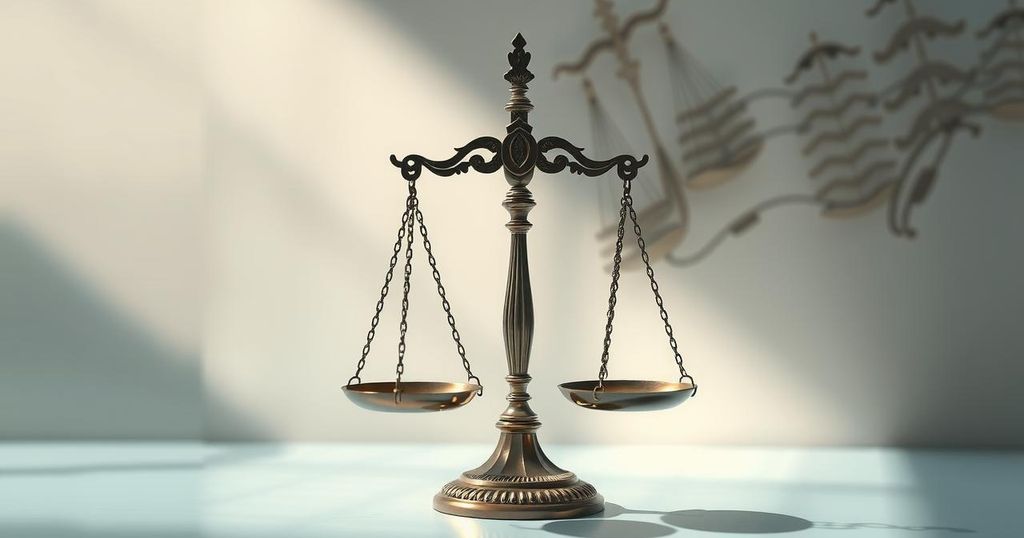Several high-profile Tunisian opposition figures are on trial facing serious national security charges, accused of plotting against the state and belonging to a terrorist group. This legal action is seen as part of President Kais Saied’s extensive efforts to suppress dissent since he assumed power. Prominent defendants include critics of Saied, with international organizations urging for an end to politically motivated arrests, while the government rejects external criticism.
A significant trial is commencing in Tunisia, focusing on numerous prominent opposition figures facing national security charges. The accusations levied against approximately 40 individuals, including politicians and activists, involve alleged affiliations with terrorist organizations and plots against the state.
These defendants, which include well-known critics of President Kais Saied, could face severe penalties, including lengthy prison sentences or even the death penalty. Critics of the government argue that the charges stem from a politically motivated crackdown on dissenting voices since Saied took power in 2021.
Among the defendants are notable figures such as Jawhar Ben Mbarek, Abdelhamid Jelassi, and Issam Chebbi. Ben Mbarek, in a letter from prison, denounced the proceedings as “judicial harassment” designed to silence opposition leaders.
Several individuals involved remain detained following their arrest in a series of crackdowns earlier this year, while others await trial at liberty or have sought refuge abroad. President Saied has publicly stated that he does not interfere in judicial matters, despite ongoing criticism regarding the independence of the judiciary.
Further complicating the political landscape, Rached Ghannouchi, leader of the Islamist-affiliated Ennahdha party, was sentenced to 22 years on charges pertaining to state security, showcasing Saied’s broader efforts to quell dissent. International bodies, including the United Nations, have called for an end to escalating arrests of political dissidents and emphasized the importance of safeguarding human rights.
In response to these global criticisms, Tunisia’s foreign ministry has expressed strong disagreement, asserting that the country can provide lessons in governance to those issuing statements about its internal affairs.
The trial of numerous Tunisian opposition figures highlights a worrying trend of political repression under President Kais Saied. With serious charges of plotting against the state being levied against outspoken critics, there are growing concerns over the implications for democracy and human rights in Tunisia. International calls for accountability contrast sharply with the Tunisian government’s insistence on its right to manage its affairs without external intervention.
Original Source: www.france24.com




